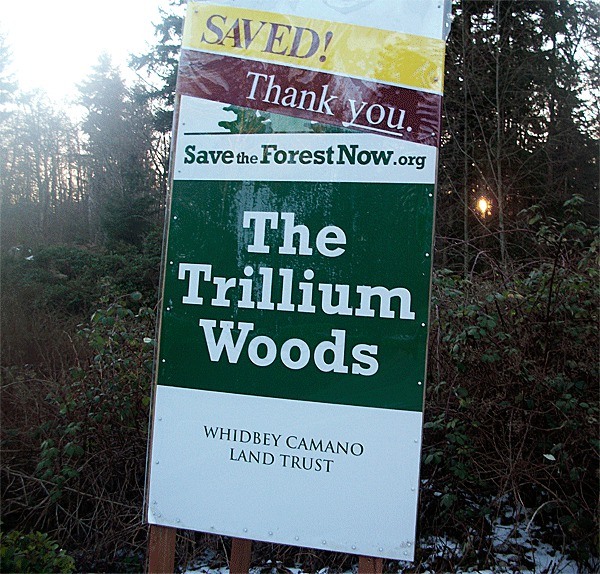What’s been happening at the Trillium forest since the celebration in October?
The short answer is “lots,” according to a news release from the Whidbey Camano Land Trust, which raised $4.2 million in donations to buy the 664-acres of forest land near Freeland. Here are some of the changes:
• Installed signs and gates.
• Created a trail map for the property, now available at www.wclt.org. Copies are also available at the Land Trust office at 765 Wonn Road, Barn C-201, at the Greenbank Farm.
• Begun recruiting volunteers to help care for the forest. Anyone who’d like to help should contact Jessica Larson, jessica@wclt.org or 360-222-3310.
Beginning in January, the Land Trust will:
• Conduct more on-site tours. The tours will once again be led by knowledgeable volunteers who have expertise in wildlife, forest ecology and other relevant topics. A tour calendar will be available by mid-January, so check the trust’s website.
• Convene an advisory committee to oversee the development of a management plan that will guide the Land Trust’s and Island County’s stewardship of the property. The committee consists of Helen Price Johnson, Island County commissioner for District 1; Bill Oakes, Island County Parks and Public Works director; Lenny Corin, a Land Trust board member who worked for the U.S. Fish and Wildlife Service for 30 years; Steve Shapiro, owner of Island Athletics; Steve Ellis, president of Whidbey Audubon; and Robin Clark, program manager for Whidbey Watershed Stewards. Jessica Larson, stewardship associate, and Pat Powell, executive director, will represent the Land Trust on the committee.
• In 2011, this advisory committee will meet with focus groups representing various stakeholders and also ask for input and feedback from the general public along the way. In early February the Land Trust will post on its website more details to help people stay informed, become involved and share their ideas.
The best source for the latest information about Trillium is the Land Trust’s website. Check www.wclt.org for updates and to read about other land and stewardship protection projects, or call 360-222-3310.



